Allan Marshall: Prison officer immunity over death was 'incorrect'
- Published
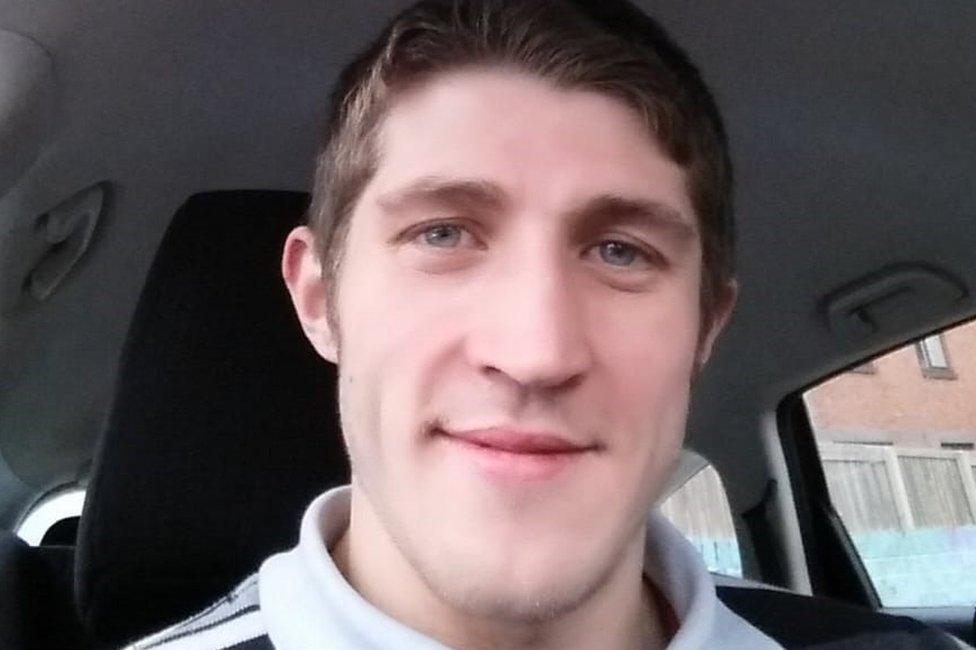
Allan Marshall was 30 when he died in 2015
The decision to give immunity from prosecution to prison officers over one of Scotland's most high-profile deaths in custody was "incorrect", new documents seen by the BBC show.
Allan Marshall died at HMP Edinburgh in March 2015 after being restrained, at different times, by 17 prison officers.
BBC Disclosure has seen a Crown Office review which said the police did not carry out a proper investigation.
If they had, one or more officers could have been prosecuted, it said.
The Crown Office review, seen by BBC Scotland but not published, said the decision not to prosecute the prison officers, made just two months after Mr Marshall's death, was "incorrect".
It said the Crown Office - Scotland's public prosecution service - should have instructed the police to carry out a more thorough investigation and should have obtained independent expert evidence.
The Crown Office later decided to grant lifelong immunity from prosecution to the prison officers when they gave evidence at a fatal accident inquiry.
The review said this decision was also "incorrect", especially as new evidence had emerged by then about the repeated use of feet during the restraint.
CCTV shows Allan Marshall being restrained by guards at HMP Edinburgh
Allan Marshall, from South Lanarkshire, was 30 when he died in 2015.
He had been placed on remand for 30 days before his next court date on breach of the peace charges.
He was transferred to the jail's segregation unit on 24 March after officers said he had become agitated.
CCTV footage shows him being dragged into a corridor and restrained by prison officers. He died in hospital four days later.
He had an underlying heart condition.
The cause of death was brain injury due to cardiac arrest during physical restraint.
Some 17 prison officers were involved at various points and some of them used their feet, which is not a technique that is taught for use when restraining inmates.
According to the fatal accident inquiry, one officer said he used his feet 10 or more times and also stamped on Mr Marshall. He later admitted it was totally out of order.
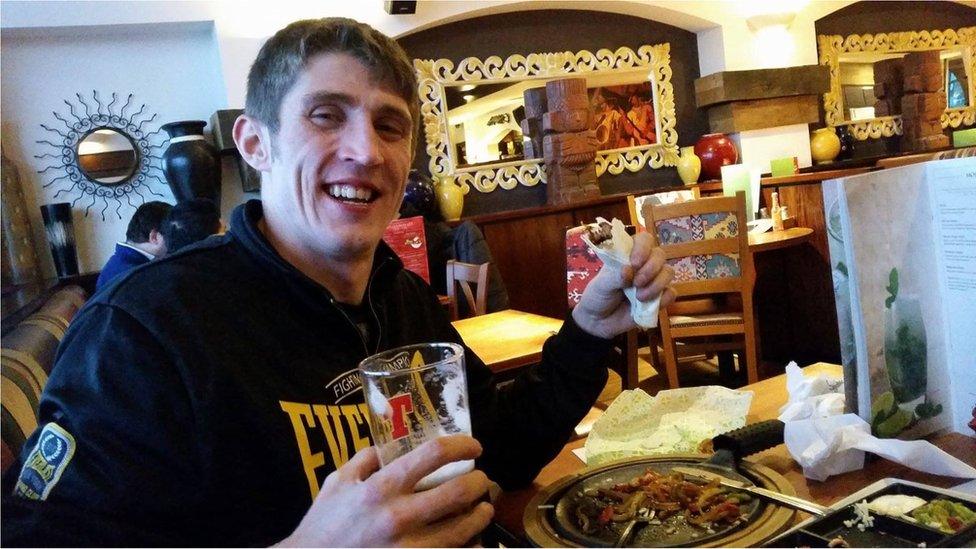
Allan Marshall was on remand at HMP Edinburgh over breach of the peace charges
The Crown Office review of the case said if they had known about the "repeated use of feet" and evidence of experts like Trevel Henry, they would have made a different decision.
Mr Henry is a restraint expert who has been an expert witness in more than 200 UK cases - including that of Mr Marshall.
He told BBC Disclosure that normally a prison restraint should involve three officers not 17.
He said: "I was surprised when I saw feet being used.
"I can't think of any other situations where I've seen the feet being used, certainly like that.
"I felt there were lots of questions that needed to be addressed when I saw the CCTV footage."
Asked if he believed the restraint was acceptable, he said "Large parts weren't, no."

Watch now: Prisons On The Brink is available here on BBC iplayer.
Lucy Adams investigates the impact of overcrowding, drugs and suicides on inmates and staff, and asks whether our crumbling prison estate can cope much longer.

Almost nine years on, BBC Disclosure has seen Crown Office documents detailing failings in how it handled the original investigation.
We took the witness transcripts to Dr Bernadette McInerney, a forensic psychiatrist with two decades experience working with people in high security settings.
She said there was no doubt Mr Marshall was behaving strangely in the days before the restraint and was psychotic. She said he "needed to see a psychiatrist".
"Restraining somebody is a risky thing to do in a person who is over-aroused for any reason be it drugs or psychosis or exhaustion," she said.
"They should have stopped it. It would have saved his life."
One prisoner who witnessed the restraint wrote to BBC Disclosure in a letter.
It said: "Alan screamed repeatedly… high-pitched shrill, he must have been demented with pain.
"I witnessed the life drain from his eyes. The screws {prison officers} stood in a circle, they looked scared and worried, their jaws wide open. They knew what they had done."
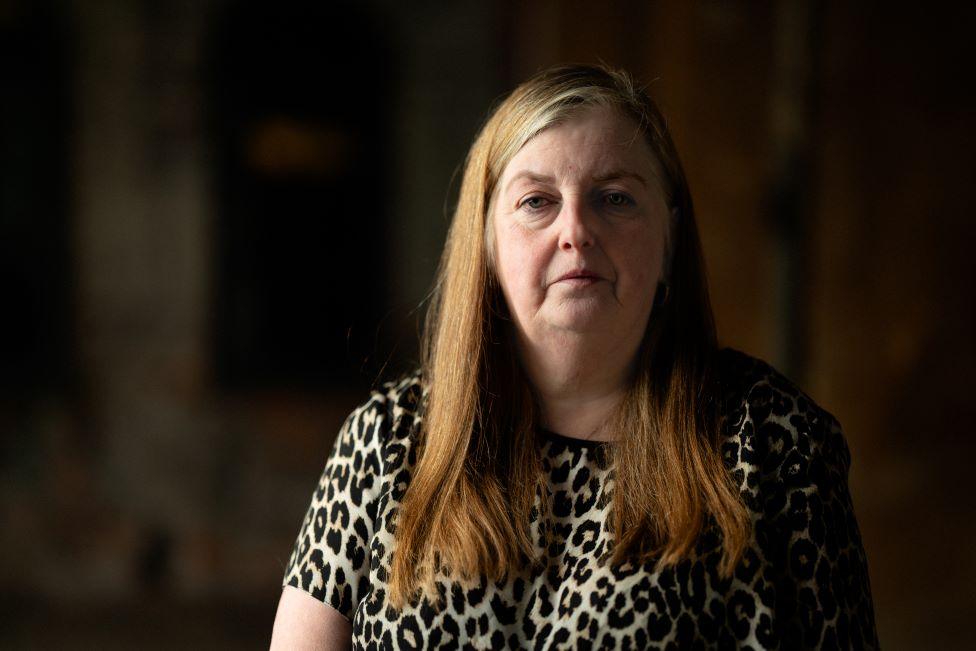
Sharon McFadyen feels the new police investigation has stalled
Sharon McFadyen, Mr Marshall's aunt, has been campaigning on her nephew's case.
A year ago the lord advocate apologised to her in person for the decision to grant immunity but she is still angry.
"They were all promised immunity, it's just unbelievable," she said.
In March last year, police were told to investigate whether the Scottish Prison Service should be prosecuted for corporate homicide.
Ms McFadyen feels the police investigation has stalled but said she would not give up until her last breath.
"I think what they're doing is, they're trying to take their time so we'll get fed up and go away," she said.
"But I'm not going to get fed up and go away until I get some justice for Allan."
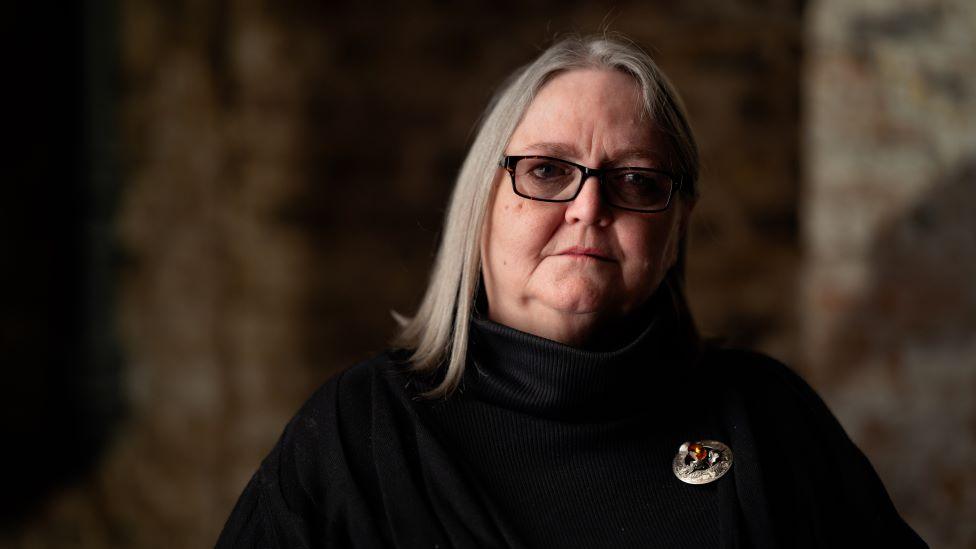
Dr Bernadette McInerney said Allan Marshall needed to see a psychiatrist
Between 2014 and 2019 there were 135 deaths in custody but Allan Marshall's was the only one where a decision was made to give the officers immunity from criminal prosecution.
Police Scotland has since apologised in person to Mr Marshall's relatives.
A spokesperson said: "We have received instruction from the lord advocate to investigate possible corporate responsibility by the Scottish Prison Service (SPS).
"We are not able to comment further at this time due to the live nature of this investigation."
Teresa Medhurst, the chief executive of the SPS, said: "Any death in custody is one that is felt by everyone, but in particular by the family.
"And obviously our thoughts go out to Mr Marshall's and family. But currently this is a matter of a live investigation. So it would be inappropriate for me to make any comment at this time."
The Crown Office told the BBC that some aspects of the initial casework fell short of what the family were entitled to expect.
It said it had learned lessons from Mr Marshall's case and the way in which custody death investigations were handled had been "reviewed and transformed".
It confirmed it had instructed Police Scotland to re-investigate and the family was being kept informed of its progress but said it was not able to comment on an ongoing investigation.
- Published7 March 2023
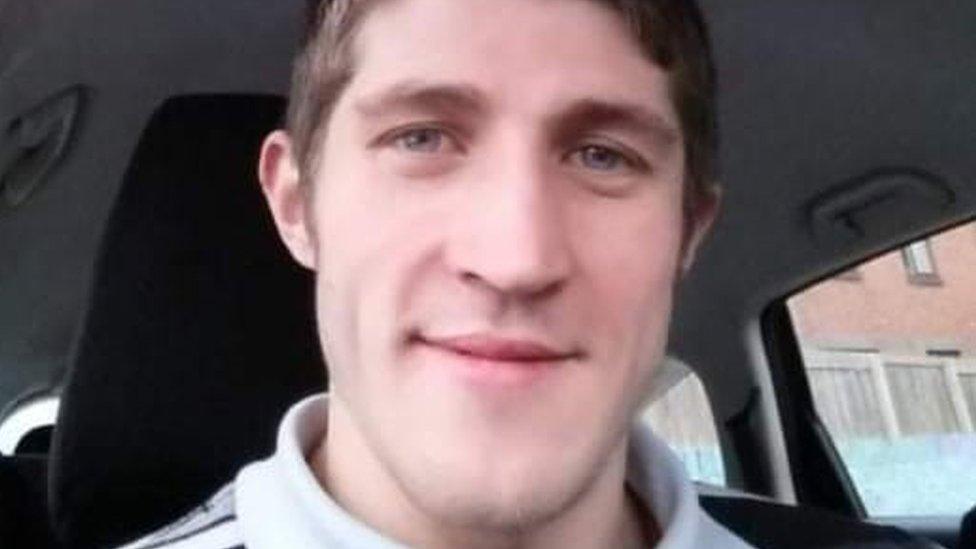
- Published19 August 2019
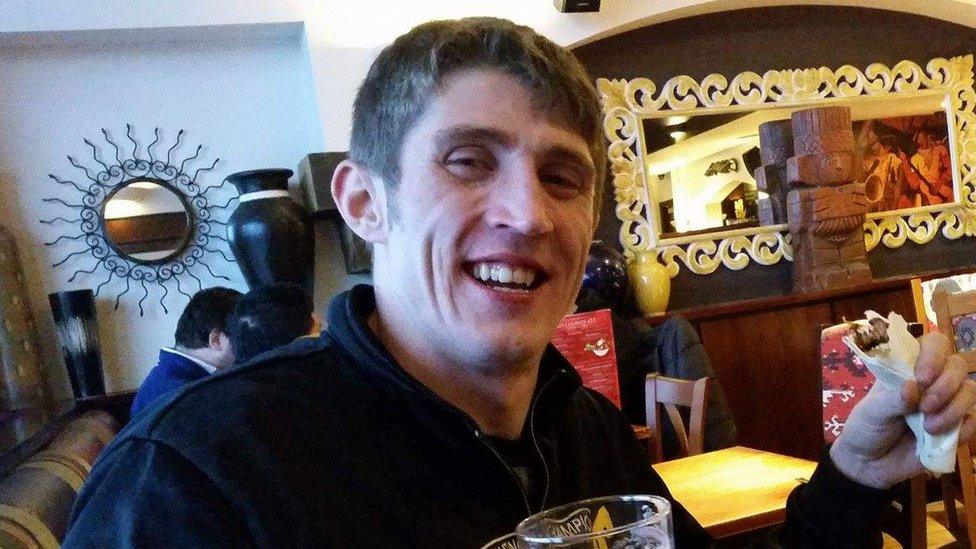
- Published5 September 2019
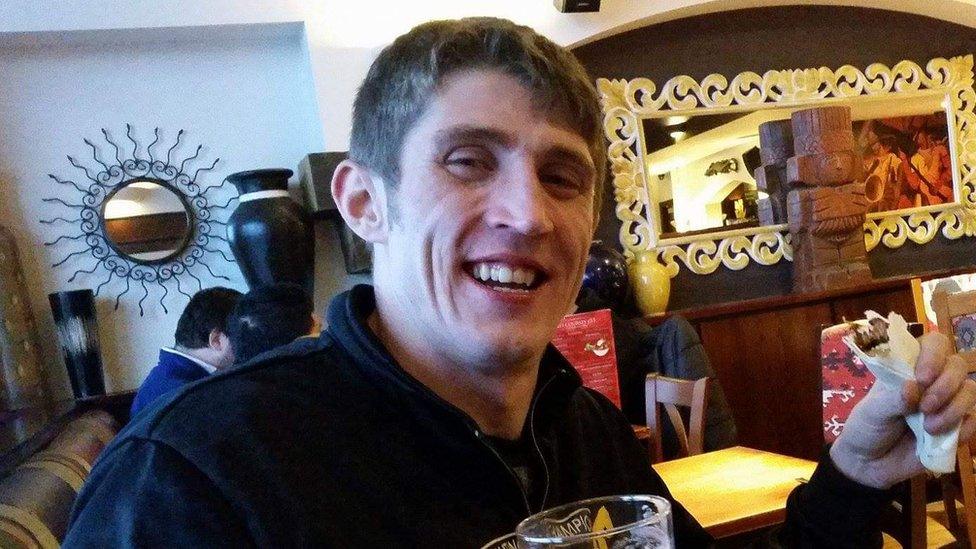
- Published6 September 2019
